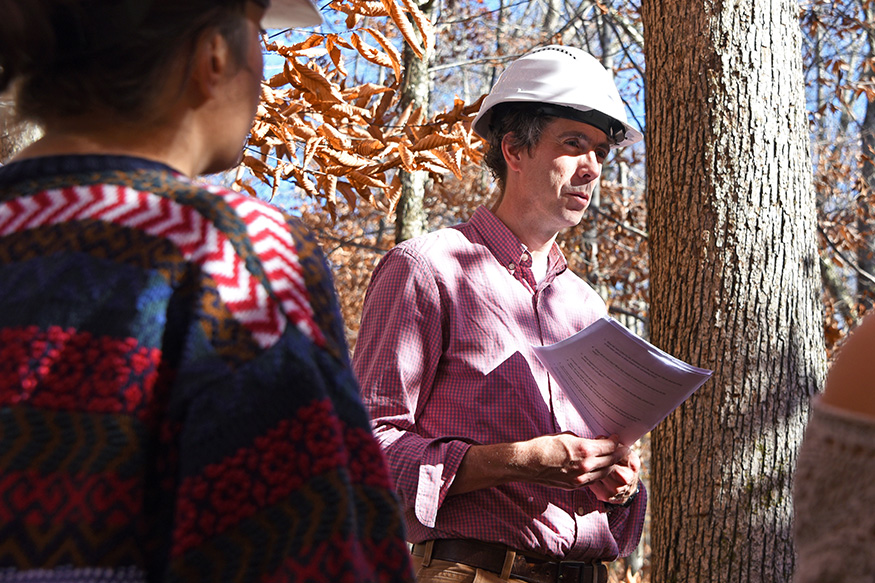Fostering Sustainable Landscapes at the Urban-Rural Interface

Examples
- The town of Simsbury acquired Meadowood, an abandoned farm, and needed to create a sustainable future for it as an open space. The farm has rich historical ties, as Dr. Martin Luther King Jr. spent a few summers working there. For their Landscape Architecture capstone project, students developed potential plans the town of Simsbury is using for the space.
- UConn Extension’s Land Use Academy is an educational program for municipal employees through the Center for Land Use Education and Research (CLEAR). Unprecedented housing pressures and climate change are among the biggest issues municipalities currently face, and the training, now in its 20th year, helps municipal officials gain skills and knowledge in planning, implementing, and regulating.
- The 2,100-acre UConn Forest serves as a research laboratory, classroom, and resource through extension and outreach services. The Urban Forestry and Arboriculture academic programs recently expanded to provide students with additional training to meet growing industry and community demand.
- The landscape sector of the Connecticut green industry contributes much to our state economy. These businesses purchase and utilize Connecticut grown nursery and greenhouse crops, while also providing landscape services for homeowners and commercial businesses both in and out of Connecticut. UConn Extension supports sustainable landscapes, native plants, and pollinators through a variety of programs and services.
- Integrated research and extension programs on turfgrass science and management focus on low maintenance turfgrasses and the evaluation and efficacy of minimum-risk weed management products. Complementary initiatives address pesticide-free athletic fields and sustainable landscape management in residential and municipal settings.
- Native plants are being established along Connecticut’s roadsides, and those throughout New England, to support pollinators and biodiverse ecosystems. The roadsides can serve as migration paths for the pollinators. Plant choices along roadsides can also support the landscape ecologically, from helping to eliminate contamination to supporting more biodiversity.